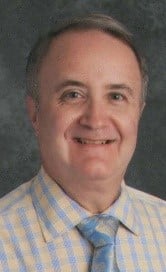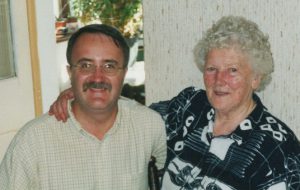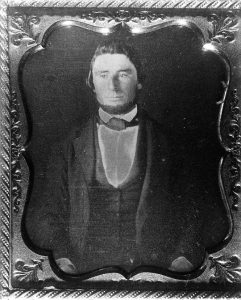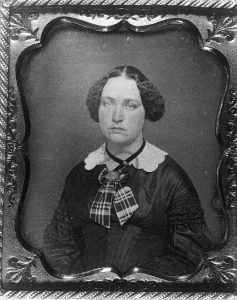Inspired by the Persian fairy tale The Three Princes of Serendip, Horace Walpole gave us the word serendipity. The following three tales shine among my past treasures as extraordinary encounters that would have been lost to history had I not been in the right place at the right time.
In the fall of 1983, I drove to West Wareham, Massachusetts on a mission to find my great-grandfather’s grave. As I searched in vain for the stone, an elderly man who lived across the road from the cemetery spied my Vermont license plate and asked for whom I was searching. “Millard Morse, father of Emory,” I said. He retorted, “Who ARE you?” Revealing my identity as Emory Morse’s grandson brought a hearty handshake from Ernest Howes, who disclosed that he and my grandfather grew up together but had lost touch. He said, “Turn around.” There next to his own home was the house where my grandfather was born in 1907. Ernest also supplied the answer to a long-standing question of what happened to the family of Millard’s sister, Edith, who left for California in the 1930s. Ernest’s wife just happened to have the address of Edith’s granddaughter, as they were third cousins. That memorable visit connected me to a lost branch of my family with whom I remain in touch.
My circuitous quest for the parentage of Rev. Silas Hall, who served ever-so-briefly as Block Island’s Baptist minister, generated dozens of typed letters and stamped return envelopes. A handwritten response from the Block Island Historical Society’s secretary, Luella Ball, had disappointing contents, but on the outside of the envelope she wrote, “Silas was from Maine. My friend is related.”
Those sepia images unlocked dozens of other identities...
Many letters, several phone calls, and an eventual ferry crossing brought me to the island home of Luella’s friend, Esther Littlefield. Then in her eighties, Esther had researched the erstwhile preacher most of her adult life. Through Esther, Silas Hall’s wife and children became real to me because Esther shared a marvelous heirloom: a carte de visite photo album with every photograph identified, a feat accomplished seventy years before at the insistence of her grandfather, who was married to Silas’s daughter. Those sepia images unlocked dozens of other identities, such as these daguerreotypes of my great-great-great-grandparents Reuben Welch and Lovicy (Hall) Paine:
*
By 1997, the internet accelerated genealogical communication. That summer, an email query from a Rhode Island woman asked if I were the person researching Dwyer families of Newport. Her father, Frank Dwyer – born in County Kerry, Ireland; now of Warwick, Rhode Island – wanted to meet me. We turned out to be distant cousins.
Our summer cookout conversation revealed a singular backstory with a remarkable twist: the truth behind the World War II incident when my grandfather, a commander in the Merchant Marine, had a ten-day layover in England. He hired a plane to fly him to Ireland to see where his father, Patrick Dwyer, was born in 1862. The locals took him to a ruined cottage, all that remained of the family “estate.” Frank Dwyer met my grandfather on that day and participated in the ruse to throw off a “nosey Yank,” perceived as a threat who might press an inheritance claim on the cousin currently living in the family homestead.
Frank suggested I might want to meet that cousin – still alive and well. A few years later on a trip to Ireland, the experience of having tea (and later, more potent beverages) with cousin Mary O’Mahony in the Dwyer family homestead ranks among my most emotional genealogical experiences.
As researchers, we always anticipate making exciting discoveries within records, but the art of genealogy intertwines our lives with others, past and present, in serendipitous ways.
Share this:

About Michael Dwyer
Michael F. Dwyer first joined NEHGS on a student membership. A Fellow of the American Society of Genealogists, he writes a bimonthly column on Lost Names in Vermont—French Canadian names that have been changed. His articles have been published in the Register, American Ancestors, The American Genealogist, The Maine Genealogist, and Rhode Island Roots, among others. The Vermont Department of Education's 2004 Teacher of the Year, Michael retired in June 2018 after 35 years of teaching subjects he loves—English and history.View all posts by Michael Dwyer →


